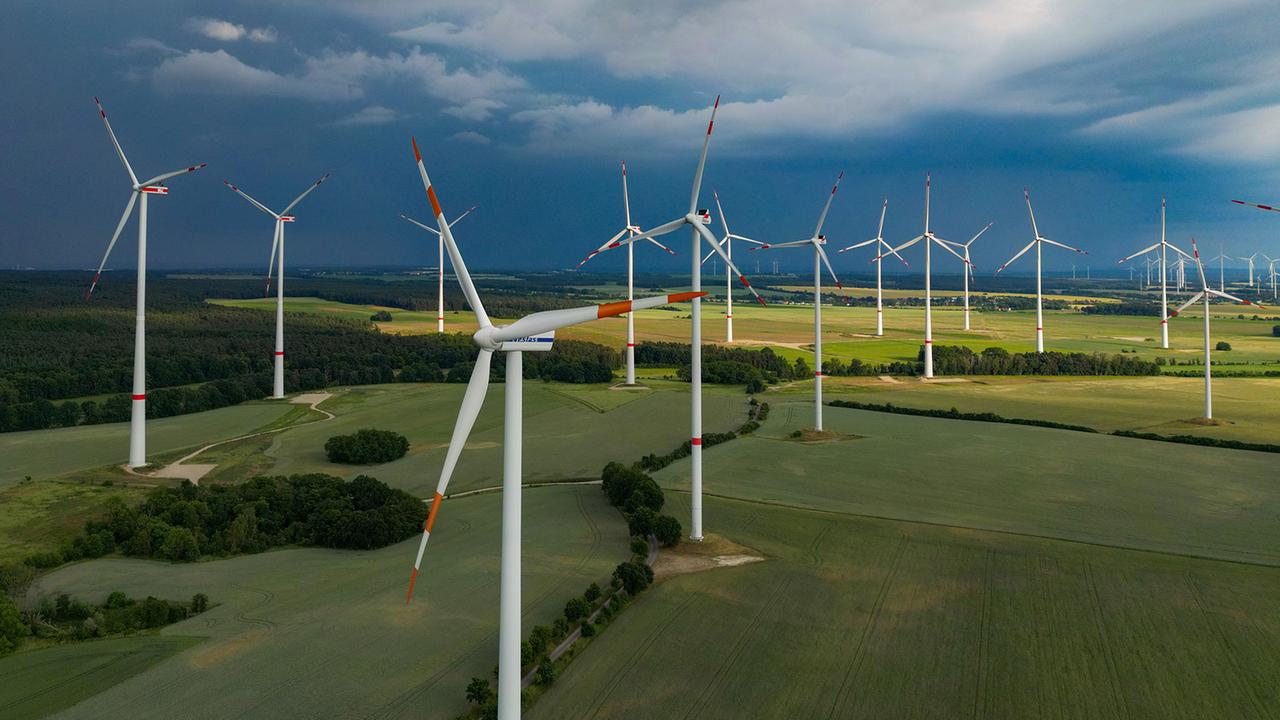The energy transition has priority in Germany. But countless regulations, staff cuts and the lack of digitalization are already causing this to fail at the office.
Actually, everything is supposed to happen very quickly. By 2030, the federal government wants 80 percent of Germany's electricity to come from renewable sources – including through the expansion of wind energy. The reality, however, is that in recent years Germany has missed its own expansion targets.
So far, for example, only about 20 percent of the targets have been achieved, according to data from the Federal Network Agency and an analysis of the ndr Two of the most important reasons: lengthy approval procedures and overloaded authorities.
It takes longer
“From my point of view, it is actually not solvable in a regular way,” says Dirk Neubauer, the non-partisan district administrator of the Central Saxony district. Everything that has been done in recent years should now be implemented much more quickly. He has the same amount of staff at his disposal. Above all, the legal and political framework is holding things back.
Over the past ten years, the duration of the approval process has doubled. With an average of almost 26 months, a new record was reached in 2023, according to an analysis by the Onshore Wind Energy Agency.
Neubauer has even seen cases that have taken up to seven years. “We have actually had projects where the application had to be withdrawn in the meantime,” says the 53-year-old. The reason: production of the type of machine applied for had been discontinued.
Dirk Neubauer is trying to promote the expansion of wind power in his district of Central Saxony.
In triplicate on paper
The approval procedures are complicated. Neubauer uses a diagram to show the individual steps from top to bottom. There are about ten steps to be seen, but after each one there is a different branch.
“For us, it means that someone stuffs ten Leitz folders in there and we have to copy these ten Leitz folders three or four times, distribute them around the building, and drive them around,” said Neubauer. “That is the opposite of progress. That is the opposite of modernity. That is the opposite of speed,” said the district administrator. If everything were digitalized, it would be a little easier. But digitalization is also stalling.
Almost all companies are bothered by the large number of laws and government regulations, according to a recent study by the Institute for Small Business Research (IfM) in Bonn. More than 90 percent see a substantial increase in the bureaucratic burden over the past five years and, as a result, almost 60 percent of all companies surveyed plan to refrain from investing in Germany in the future.
Battle for staff
The company SachsenEnergie wants to build new wind turbines in the Erlau wind farm. The Central Saxony district office is responsible for two of them. Martin Schramm from SachsenEnergie explains that his employees needed more than a year to prepare the documents for the application for two systems.
Such a procedure costs Schramm's company up to 200,000 euros. The most expensive part is the time and the staff – the latter in particular is in short supply. “We need employees who have to understand the requirements of the laws and regulations.”
District Administrator Neubauer replies: “You have that on your side, I have that on my side.” For the businessman and the head of the authority, this means: “We are fighting for the same people. That's another thing. We are running against each other,” says Schramm.
There is another shortcoming for the authorities: 60 percent of public sector employees think that the state can no longer cope with its tasks. This is shown by a recent Forsa analysis. Almost half of the heads of authorities think the same.
Dirk Neubauer also has similar thoughts. He believes that under the current circumstances – at all levels from the federal government to the local government – Germany is no longer in a position to solve the problems at hand.
“I have been in this political orbit for more than ten years. I work 80-hour weeks and I notice that we are not making any progress,” says Neubauer. “It is wasted time. And it is time to say it out loud and then have a very open debate.” He is even thinking about quitting.
Work faster despite the worst-case scenario
In order to speed up the approval process, Neubauer and his agency are taking unusual steps. A species protection report must be prepared each time. This takes two years. If endangered species such as the red kite are found, compensatory measures are required.
For a few months now, the Central Saxony District Office has been using the so-called worst-case scenario. This means that it is assumed that an endangered species of animal will be found and that a compensatory measure will therefore be planned from the outset. Because: “Even after two years of population research, the result would be the same,” says Neubauer. “I really call that self-defense.”
From the Reducing bureaucracy to the Bureaucratic problems?
How did this come about? It was the reduction in bureaucracy, says Oliver Decker, social psychologist and democracy researcher at the University of Leipzig. Because the public sector has withdrawn from many areas over the past 20 to 30 years, the state has withdrawn from rural regions. Jobs have been reduced.
“This means that we have had to deal with a weakening of bureaucracy, exactly where it actually needs to be,” says Decker. This has led to a constant feeling of frustration and devaluation among citizens. “At the same time, however, these political decisions are also being delegitimized, which means that they are losing massive acceptance and the state as a mediator between different interests is also losing acceptance.”
Slow energy transition and overloaded administration
With the amendment to the Federal Immission Control Act, the federal government now wants to significantly speed up the approval process for wind turbines. Industry associations welcome this change. However, instead of fundamentally reforming the procedures or giving the authorities more resources, the law primarily increases the pressure. This is because it allows an application for approval to be extended once by three months. A decision must then be made.
You can find out more about this topic in the documentary “Overwhelming flood of paper – Of bureaucracy monsters, overregulation and gasping for breath” this evening at 9.45 p.m. on ARD or now in the ARD media library. You can also listen to the podcast “Overwhelming flood of paper – bureaucracy is annoying!” in the ARD audio library.




